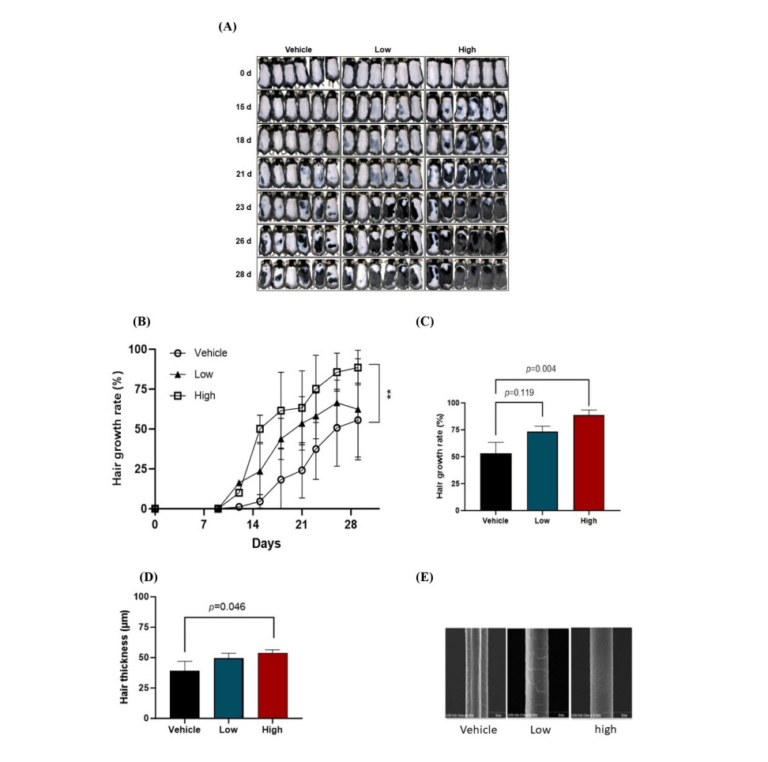Hair loss, a widespread concern affecting both men and women, has led to increased interest in non-chemical treatments. Amidst this, the efficacy of probiotics in promoting hair health has gained attention. This study focuses on the impact of Lactilactobacillus curvatus LB-P9, a probiotic strain, on hair regeneration, offering an alternative to traditional treatments like minoxidil and finasteride.
THE ROLE OF LACTILACTOBACILLUS CURVATUS LB-P9 IN HAIR GROWTH
The study delved into how LB-P9 affects hair regeneration. Key findings include:
- Increased Cell Proliferation: Treatment with LB-P9 enhanced the growth of hair follicle cells and hair germinal matrix cells.
- Upregulated Growth Factors: Higher levels of factors like VEGF and FGF-7 were observed in cells treated with LB-P9.
- In Vivo Effects: Mice administered with varying doses of LB-P9 showed faster hair growth and increased hair thickness.
- Enhanced Follicle Numbers and Skin Thickness: A notable increase in these parameters was observed in LB-P9 treated groups.
- Elevated β-Catenin Levels and Stem Cell Numbers: Indicating a potential mechanism behind the probiotic’s effect.
- Increased Serum Growth Factors: Higher levels of VEGF and IGF-1 were found in the treated groups.
PROBIOTICS AND HAIR HEALTH
Recent research has highlighted the potential of probiotics in influencing human physiology and well-being. The gut-brain-skin axis, in particular, suggests a significant role of probiotics in controlling skin inflammation and regulating hair follicle cycling. This study adds to the growing body of evidence supporting the beneficial effects of specific probiotics on hair health.
STUDY DESIGN AND METHODOLOGY
Probiotic Culture: L. curvatus LB-P9, sourced from Kimchi, underwent thorough identification processes and was used in both in vitro and in vivo experiments.
Cell Cultures and Treatments: Human hair cells were treated with LB-P9 conditioned medium, and proliferation and growth factor expression were assessed.
Animal Model: Mice were administered LB-P9 post-depilation, and various parameters like hair growth rate, follicle numbers, and dermal thickness were measured.
Molecular Analysis: The study explored the molecular mechanisms behind LB-P9’s effects, focusing on the Wnt/β-catenin pathway and hair growth factor production.
CONCLUSION
This comprehensive study underscores the potential of Lactilactobacillus curvatus LB-P9 as a natural, probiotic-based alternative for promoting hair regeneration. The findings pave the way for further research into the molecular interactions between probiotics and hair growth, opening new avenues in the treatment of hair loss.
To view the full article, click here.

